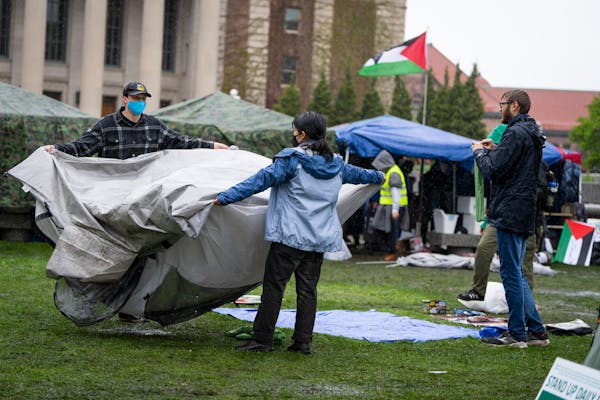National Wind, a Minneapolis-based wind developer, plans 500 megawatts of community-owned wind projects in gusty central Montana that would feed power all the way to Las Vegas using a planned high-voltage transmission line.
National Wind is joining with a Montana wind company to form Judith Highlands Energy, which plans to develop the estimated $1 billion project over the next five to eight years.
"The local support for Judith Highlands Energy is substantial," said Patrick Pelstring, co-chairman and founder of six-year-old National Wind. "Area ranchers are realizing that ... our model seeks to allow local community participation, which provides potential for sharing in both turbine leases and revenue from a successful project."
Federal law that provides tax credits to wind developers are targeted at utilities and energy companies that lease land for wind turbines from farmers and ranchers. Small developers, such as Juhl Wind of southwestern Minnesota, are working to get that law changed so that small local ownership groups -- including farmers, businesspeople and others -- can own small projects and take advantage of federal tax breaks.
National Wind is headed by CEO Leon Steinberg, a former business lawyer turned entrepreneur. The company puts together investor groups that start with locals who want the project.
"The communities approach us," Steinberg said. "Usually, a group of farmers who have property and who don't just want to lease it. Often they have been approached previously by a large developer representing big energy companies. We're a 50-employee company.
"At the end of the project, prior to construction, we also will bring in large institutional investors. If the local community is invested in it, then we know that this project has a higher likelihood of happening. Utilities [who buy the power] like it, because they are likely to be built and built on time."
National Wind's business model takes advantage of a 2005 Minnesota law that requires utilities to offer community wind projects -- defined as at least 51 percent local ownership -- a special tariff during the early years of a contract so that local investors can recoup their costs faster. The company also offers local investors a slightly better deal on initial shares in the project.
National has 12 projects totaling 3,900 megawatts in various stages of development in Minnesota, Colorado, Iowa, South Dakota and Ohio.
The company is owned by South Dakota's McGowan Capital Group through its Harmony private equity fund and a number of employees.
No. 2,000 for Habitat Habitat for Humanity, one of the Twin Cities' 10 largest home builders during the past two years amid the housing industry contraction, on Friday christened its 2,000th home. That milestone also closes out a four-year, $125 million international partnership with Minneapolis-based Thrivent Financial.
Twin Cities Habitat produces about 50 homes annually.
Its allocation from Thrivent has accounted for about 10 houses annually since 2006. The 2,000th house is being built in north Minneapolis, where there are still several hundred foreclosures and vacant lots, thanks to the subprime mortgage debacle and several mortgage-related fraud rings.
Thrivent, Habitat's single-largest national corporate partner, has committed $15 million to produce an additional 180 homes nationally in 2010.
Twin Cities Habitat expects its Thrivent-related projects will only decline from 10 houses to eight.
The nonprofit builder also expects to increase its Twin Cities production to nearly 60 units next year. That's because Habitat has shifted from a sole focus on new construction to restoration of abandoned properties.
"We are able to do more with less, depending upon how extensive a rehab is required," said Sharon Rolenc, a Twin Cities Habitat spokeswoman.
"The new construction is on long-standing vacant lots, or where old houses were torn down because they were in such poor shape that it's better to tear down and build anew."
Twin Cities Habitat, which had revenue of about $17 million in the fiscal year ended in June and which employs about 100 people, also relies on volunteers, as well as prospective working-class buyers to put "sweat equity" into their homes.
Many lower-income borrowers can get interest-free mortgages.
The cost of renovations run from $35,000 to $125,000 a house, Habitat CEO Susan Haigh said last month.
Nationally, Habitat also is renovating its business model because of the mortgage meltdown.
Neal St. Anthony • 612-673-7144 • nstanthony@startribune.com

